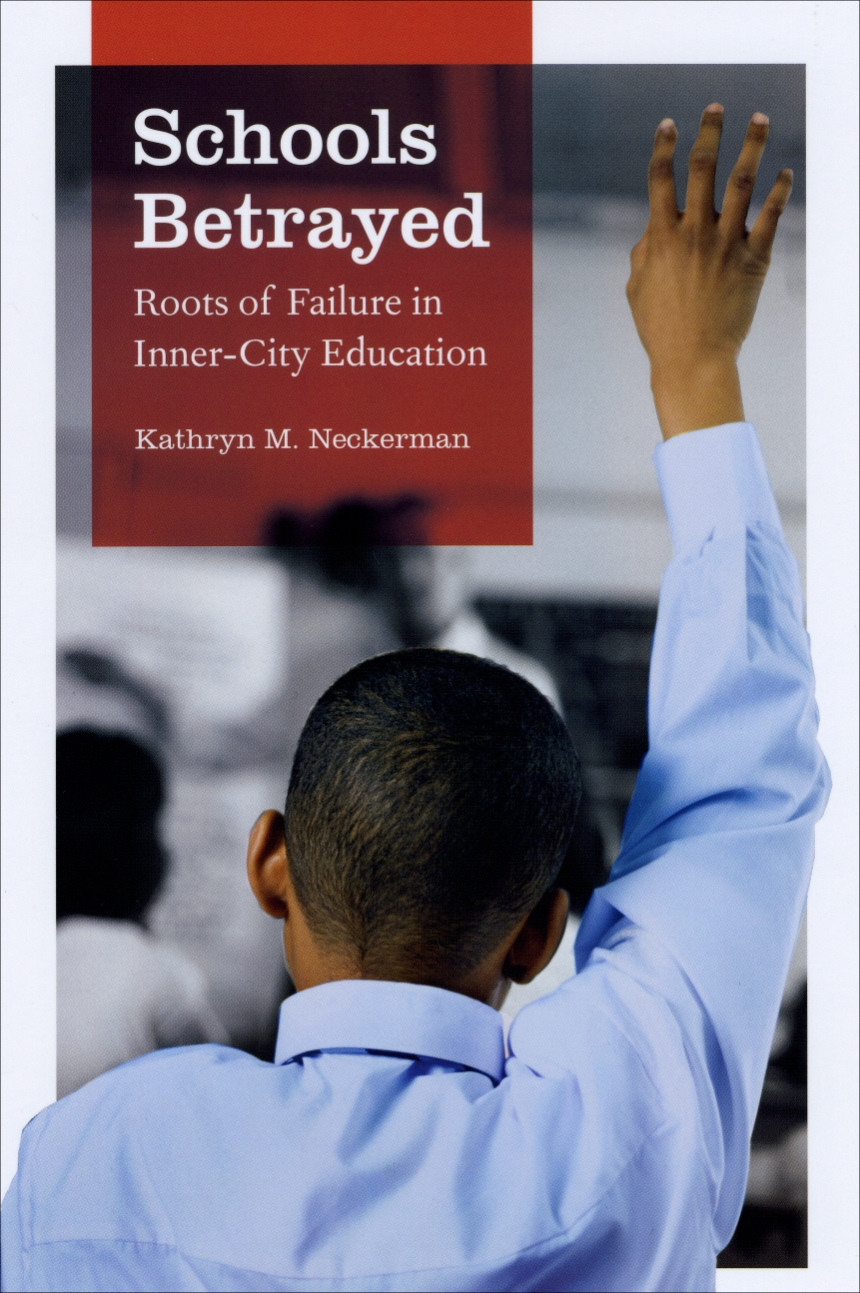Schools Betrayed
Roots of Failure in Inner-City Education
The problems commonly associated with inner-city schools were not nearly as pervasive a century ago, when black children in most northern cities attended school alongside white children. In Schools Betrayed, her innovative history of race and urban education, Kathryn M. Neckerman tells the story of how and why these schools came to serve black children so much worse than their white counterparts.
Focusing on Chicago public schools between 1900 and 1960, Neckerman compares the circumstances of blacks and white immigrants, groups that had similarly little wealth and status yet came to gain vastly different benefits from their education. Their divergent educational outcomes, she contends, stemmed from Chicago officials’ decision to deal with rising African American migration by segregating schools and denying black students equal resources. And it deepened, she shows, because of techniques for managing academic failure that only reinforced inequality. Ultimately, these tactics eroded the legitimacy of the schools in Chicago’s black community, leaving educators unable to help their most disadvantaged students.
Schools Betrayed will be required reading for anyone who cares about urban education.
272 pages | 25 line drawings, 14 tables | 6 x 9 | © 2007
Education: Pre-School, Elementary and Secondary Education
Sociology: Race, Ethnic, and Minority Relations
Reviews
Table of Contents
Acknowledgments
Introduction
CHAPTER 1. Urban Decline
CHAPTER 2. Labor Markets
CHAPTER 3. Communities and Cultures
CHAPTER 4. Racial Segregation and Inequality
CHAPTER 5. Vocational Education
CHAPTER 6. Remedial Education
CHAPTER 7. Classroom Dynamics
Conclusion
Appendix A: Quantitative Evidence
Appendix B: Historical Evidence concerning Language Styles and Schooling
Notes
Selected Bibliography
Index
